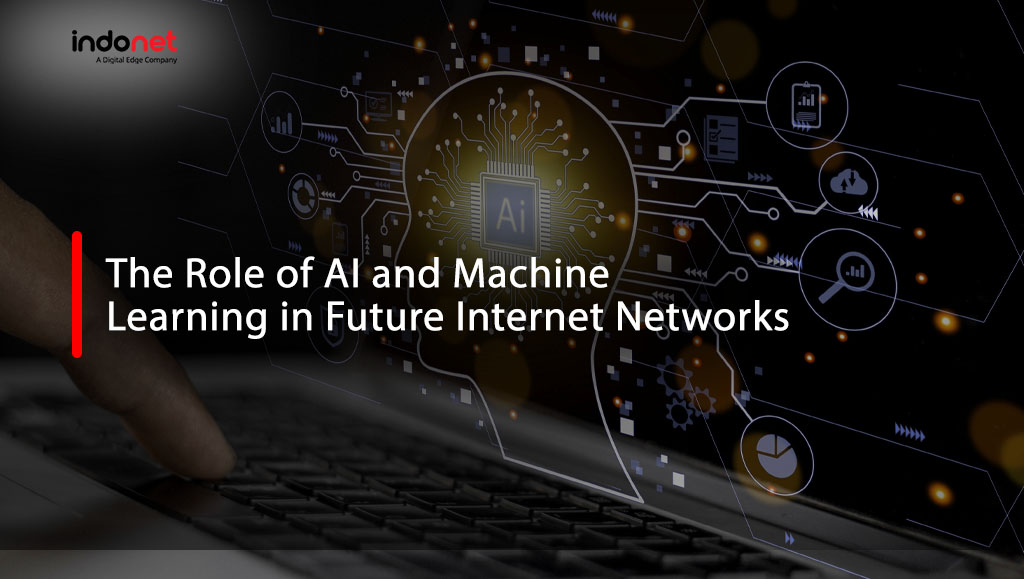In an increasingly advanced digital era, the role of AI and Machine Learning in the future of the internet is becoming ever more important. AI, or “artificial intelligence,” is a technology capable of handling various tasks typically performed by humans.
Meanwhile, Machine Learning, a branch of AI, allows systems to learn and improve performance based on acquired data. These technologies not only bring significant changes across various industries but also offer sophisticated solutions to the challenges faced by today’s internet networks.
With proper development and application, AI and Machine Learning have the potential to revolutionize how humans use and manage the internet in the future. Therefore, let’s explore the critical role of AI and Machine Learning in internet networks, how these technologies can be implemented to overcome various challenges, and their future prospects in shaping a smarter, safer, and more efficient internet.
The Role of AI and Machine Learning in the Future of the Internet
The role of AI and Machine Learning in the future of the internet is extensive, including but not limited to the following examples:
- Network Optimization:
AI and Machine Learning play a crucial role in optimizing internet network performance. By using machine learning algorithms, systems can analyze network traffic data in real-time and predict future usage patterns. This enables more efficient bandwidth management and resource allocation. For example, AI can detect data traffic spikes and automatically adjust network settings to prevent congestion. Additionally, AI can identify and resolve performance issues before they negatively impact users. - Network Security:
Security is one of the most critical aspects of internet networks, and AI and Machine Learning provide more advanced solutions for detecting and addressing threats. AI algorithms can monitor network activity to detect suspicious patterns and cyber-attacks in real-time. With continuous learning, these systems can recognize new types of malware and emerging attack techniques, offering more proactive protection. - Network Management:
AI and Machine Learning also play a significant role in automating network management. With the ability to analyze large amounts of data and make data-driven decisions, AI can automate many management tasks previously requiring human intervention. This includes predictive maintenance, where the system can predict when and where problems might occur and take preventive action before they happen. Additionally, AI can dynamically manage network resources, ensuring users always get the best performance from the network. - Enhanced User Experience:
Applying AI in user behavior analysis can help improve service quality and overall user experience. By leveraging data from user activities, AI can personalize content and services according to individual preferences. For instance, streaming services can use machine learning algorithms to recommend relevant content based on a user’s viewing history. Furthermore, AI can help optimize streaming quality by dynamically adjusting video resolution according to the user’s network conditions, reducing buffering, and enhancing user satisfaction.
Integrating AI and Machine Learning in various aspects of internet networks can create smarter, more efficient, and secure networks that meet current needs and are ready to face future challenges.
Challenges and Obstacles in Implementing AI and Machine Learning in Future Internet Networks
Implementing AI and Machine Learning in future internet networks will not be easy. There will be various challenges and obstacles, such as:
Technical Challenges:
Despite their potential to improve internet networks, the implementation of AI and Machine Learning comes with technical challenges. One major challenge is the need for large amounts of high-quality data to train AI models. Collecting and storing this data requires robust infrastructure and significant costs. Additionally, machine learning algorithms often require high computational power, which can be a constraint for service providers with limited resources. AI performance can also be affected by the quality of data used; inaccurate or biased data can result in unreliable or discriminatory models.
Privacy and Data Security Issues:
The use of AI and Machine Learning in internet networks involves large-scale data collection and analysis, raising concerns about privacy and data security. User data collected by AI can be misused if not properly protected, posing significant privacy breach risks and potential data leaks.
Ensuring that data used to train AI models is not misused or accessed by unauthorized parties is another challenge. Implementing stringent privacy and security policies is essential to maintain user trust.
Regulatory and Ethical Barriers:
AI and Machine Learning in internet networks also face regulatory and ethical barriers. Many countries have strict regulations on the use of personal data and cybersecurity. Navigating these various regulations can be challenging for companies operating globally. Additionally, ethical considerations, such as ensuring AI is used fairly and without discrimination, must be addressed. This includes handling bias in data and algorithms and ensuring transparency in AI decision-making.
By addressing these challenges, the implementation of AI and Machine Learning in internet networks can be optimized to create stronger, safer, and more efficient networks.
The Future of Internet Networks with AI and Machine Learning
In the coming years, AI and Machine Learning technologies are expected to continue evolving rapidly and become increasingly integrated into internet networks. With advancements in computing capabilities and the availability of abundant data, AI algorithms will become more sophisticated and capable of performing more complex tasks.
Progress in deep learning and reinforcement learning will enable AI to make more accurate and efficient decisions in network management and security. Integrating AI and Machine Learning into internet networks will significantly impact various industries.
In the telecommunications sector, AI can automate many operational aspects, from network management to customer service, improving efficiency and reducing operational costs. In the financial industry, AI can be used to detect and prevent fraud and optimize online transactions.
In the healthcare sector, AI can assist in patient data management and improve telemedicine services. All these advancements will result in better services and enhanced user experiences.
As AI and Machine Learning continue to develop, you can expect the emergence of new innovations that will change how humans use the internet. This is why the role of AI and Machine Learning in the future of the internet is becoming increasingly vital.
To stay ahead in this development, you can leverage Indonet. Indonet will help bridge you and your company toward digital transformation, providing essential infrastructure. Consult your company’s connectivity needs and achieve digital acceleration with Indonet!

